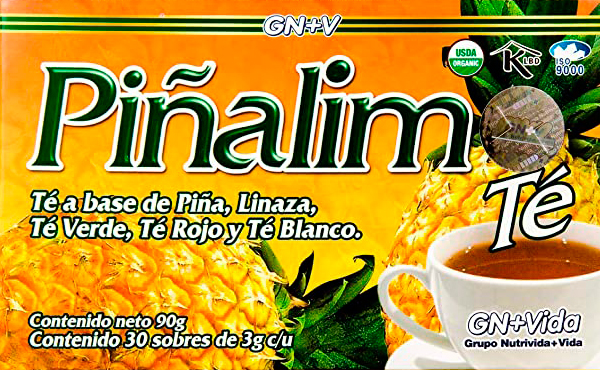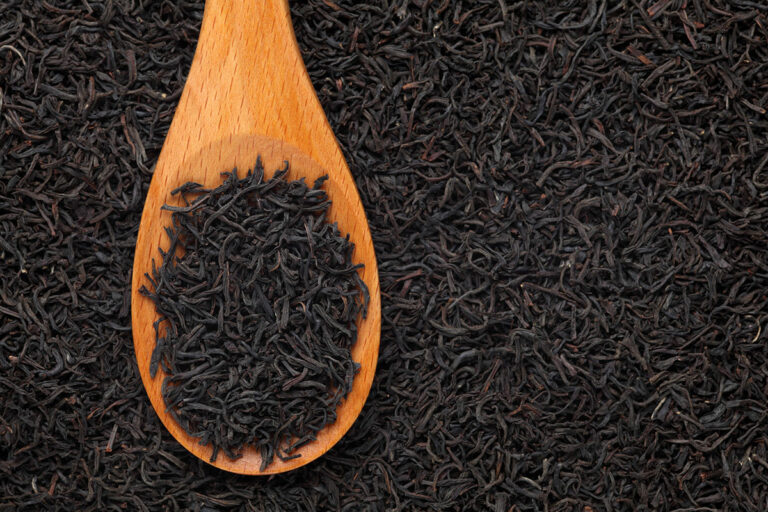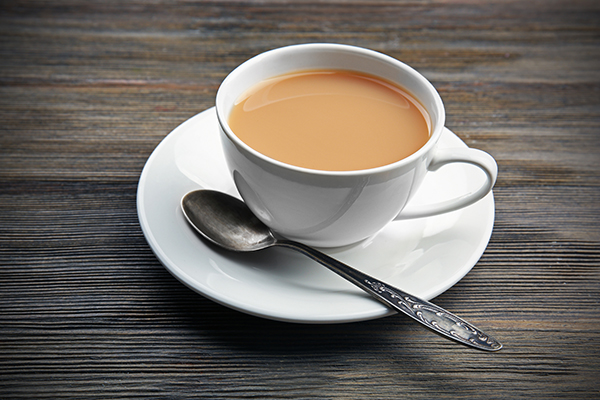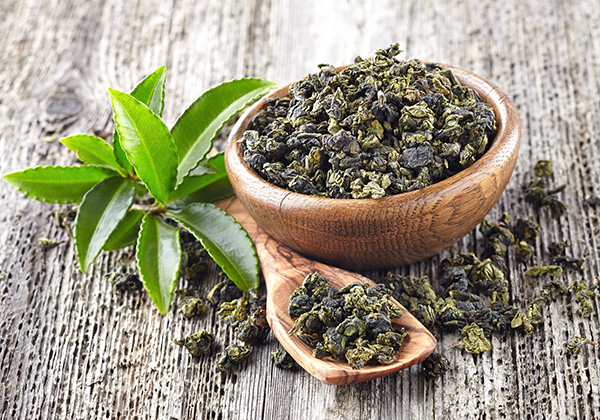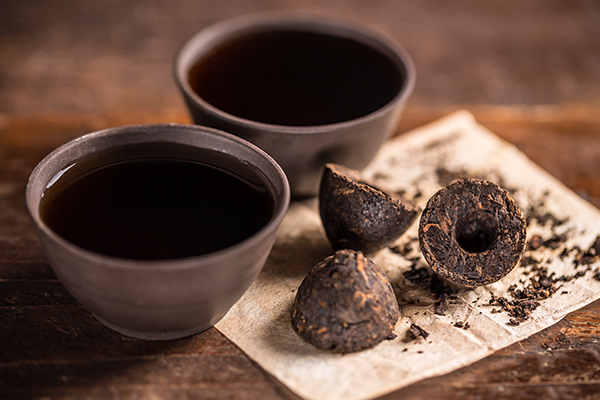Milk Thistle Tea Benefits and Side Effects
Discover milk thistle tea’s potential health benefits and side effects, and learn how to prepare it safely and effectively.
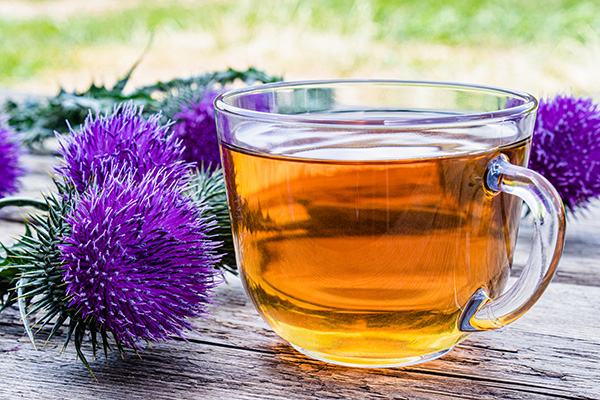
What Is Milk Thistle Tea?
Milk thistle tea is a herbal infusion made from the seeds of the milk thistle plant, scientifically known as Silybum marianum. This plant is native to the Mediterranean region and has been used traditionally for its medicinal properties for centuries.
Potential Health Benefits of Milk Thistle Tea
Milk thistle tea boasts a variety of health benefits due to its active ingredient, silymarin, a powerful antioxidant and anti-inflammatory compound.
May Promote Liver Health
Milk thistle tea is widely recognized for its potential liver health benefits. The active compound in milk thistle, silymarin, has been shown to have liver-protecting properties. Silymarin is a powerful antioxidant and anti-inflammatory compound that may help the liver by:
- Preventing liver damage: Studies have suggested that silymarin can help protect the liver from damage caused by toxins, such as alcohol and certain medications (1). It does this by strengthening liver cell walls and preventing harmful substances from entering the cells.
- Supporting liver regeneration: Silymarin may also promote liver cell regeneration, helping the liver to recover from damage (2). This effect has been observed in studies on individuals with liver diseases, such as cirrhosis and hepatitis.
While there is promising evidence supporting the use of milk thistle tea for liver health, it is important to note that the studies have mostly been conducted on milk thistle extracts or supplements, which have higher concentrations of silymarin than tea.
More research is needed to confirm the efficacy of milk thistle tea specifically for liver health.
Teas with liver support and repair properties include others such as Ginseng, Green Tea, Turmeric, Ginger, Danshen, and Ginkgo Biloba.
May Boost Milk Supply in People Who Are Breastfeeding
Milk thistle tea has been traditionally used to increase milk supply in lactating individuals. Its potential galactagogue effect, which is the ability to stimulate milk production, has been attributed to the presence of silymarin.
A study conducted on 50 lactating women found that supplementation with silymarin significantly increased milk production compared to the control group (3). The participants took 420 mg of silymarin per day for 63 days, and the researchers observed a 64% increase in milk production.
It is important to note that the studies mentioned above were conducted using milk thistle supplements, which typically contain higher concentrations of silymarin compared to milk thistle tea.
Several other teas may also have a beneficial impact on lactation.
May Have Anti-diabetic Effects
Milk thistle tea may help lower blood sugar levels and improve insulin sensitivity in people with type 2 diabetes, according to some studies (4).
May Help Prevent Age-Related Decline in Brain Function
Thanks to its active compound silymarin, milk thistle tea may have neuroprotective properties that could help prevent age-related cognitive decline. Research has shown that silymarin exhibits several effects on the brain that may contribute to its potential neuroprotective role:
- Antioxidant effects: Silymarin has been shown to possess strong antioxidant properties, which may help protect brain cells from damage caused by free radicals and oxidative stress, both of which contribute to age-related cognitive decline (5, 6).
- Anti-inflammatory effects: Inflammation is also associated with cognitive decline and neurodegenerative diseases. Silymarin has demonstrated anti-inflammatory properties, which may help reduce inflammation in the brain and protect against age-related cognitive decline (7, 8).
- Inhibition of amyloid-beta aggregation: The accumulation of amyloid-beta plaques in the brain is a hallmark of Alzheimer’s disease. Some studies suggest that silymarin may help inhibit the aggregation of amyloid-beta, potentially slowing down the progression of Alzheimer’s disease (9, 10, 11).
May Protect Your Bones
Some studies suggest that milk thistle tea could help protect bones by preventing bone loss and improving bone mineral density (12, 13, 14, 15).
May Improve Cancer Treatment
Preliminary research indicates that silymarin may enhance the effectiveness of certain cancer treatments, although more studies are needed to validate these claims (16, 17, 18).
May Help Treat Acne
Milk thistle tea’s anti-inflammatory properties might help reduce acne symptoms, but more research is required to establish a clear connection (19).
Side Effects of Milk Thistle Tea
Milk thistle tea is generally considered safe for most individuals when consumed in moderation. However, some side effects may occur, including:
- Gastrointestinal issues: Some people may experience mild gastrointestinal discomfort after consuming milk thistle tea. Symptoms can include nausea, bloating, gas, and diarrhea.
- Allergic reactions: Milk thistle belongs to the Asteraceae family, which includes plants like ragweed, chrysanthemums, marigolds, and daisies. Individuals allergic to plants in this family may also have an allergic reaction to milk thistle tea. Symptoms can range from mild, like skin rashes or itching, to severe, such as difficulty breathing or anaphylaxis.
- Interactions with certain medications: Milk thistle tea may interact with some medications, potentially affecting their efficacy or increasing the risk of side effects. Notably, it may interact with diabetes medications, cholesterol-lowering drugs (statins), and blood thinners (anticoagulants). If you are taking any of these medications, consult your healthcare provider before consuming milk thistle tea.
- Lowering blood sugar levels: Milk thistle tea may lower blood sugar levels, which can be beneficial for people with diabetes. However, this effect may cause hypoglycemia (low blood sugar) in some individuals, particularly those already taking medications to control blood sugar levels.
If you experience any side effects or are concerned about potential drug interactions, consult your healthcare provider before consuming milk thistle tea.
Who Should Avoid Milk Thistle Tea
While milk thistle tea is generally safe for most individuals, there are certain groups of people who should avoid it due to potential risks or lack of sufficient research on its safety:
- Pregnant women: There is limited research on the safety of milk thistle tea during pregnancy. To err on the side of caution, pregnant individuals should avoid consuming milk thistle tea until more research is available.
- People with hormone-sensitive conditions: Milk thistle may have estrogenic effects, which could potentially worsen hormone-sensitive conditions like breast, uterine, or ovarian cancer, endometriosis, or uterine fibroids. If you have a history of any of these conditions, consult your healthcare provider before consuming milk thistle tea.
- Those with allergies to plants in the Asteraceae family: People with known allergies to plants in the Asteraceae family, such as ragweed, chrysanthemums, marigolds, or daisies, may also be allergic to milk thistle and should avoid consuming milk thistle tea.
- People taking certain medications: Milk thistle tea may interact with some medications, including blood thinners (anticoagulants), cholesterol-lowering drugs (statins), and diabetes medications. If you are taking any of these medications, consult your healthcare provider before adding milk thistle tea to your routine.
As always, it is important to consult your healthcare provider before incorporating milk thistle tea into your diet, especially if you belong to any of the groups mentioned above or have any existing medical conditions.
How to Make Milk Thistle Tea
- Crush 1 tablespoon of milk thistle seeds using a mortar and pestle or a grinder
- Add the crushed seeds to a teapot or infuser
- Pour 8 ounces of boiling water over the seeds
- Steep for 15-20 minutes
- Strain the tea and enjoy
Final Thoughts
Milk thistle tea has numerous potential health benefits, but it’s essential to be aware of its side effects and potential risks. Always consult your healthcare provider before introducing milk thistle tea into your daily routine.
FAQ
What Does Milk Thistle Tea Taste Like?
Milk thistle tea has a mildly bitter and earthy flavor, similar to the taste of artichoke. Some people prefer to add a sweetener, like honey or stevia, to enhance the taste.
Is It Safe to Drink Milk Thistle Tea Every Day?
For most individuals, it is safe to drink milk thistle tea daily. However, it is crucial to consult your healthcare provider before incorporating it into your daily routine, especially if you have any existing medical conditions or take medications.
When Should I Drink Milk Thistle Tea?
There is no specific time of day that is best for drinking milk thistle tea. It can be enjoyed at any time, depending on your preference and needs. If you’re using it for liver support, you might consider drinking it in the morning to start your day.
If you bought a branded milk thistle tea, it’s always best to follow the manufacturer’s guidelines written on the packaging.
How Long Can You Take Milk Thistle Safely?
There is no definitive answer to how long you can safely take milk thistle. It is generally considered safe for short-term use (up to six months). However, long-term safety is not well-established.
Always consult your healthcare provider before using milk thistle for extended periods.
Does Milk Thistle Cause Weight Gain?
There is no scientific evidence to suggest that milk thistle causes weight gain. In fact, some studies have indicated that milk thistle may help with weight loss by reducing inflammation and improving insulin resistance. However, more research is needed to confirm these findings.

